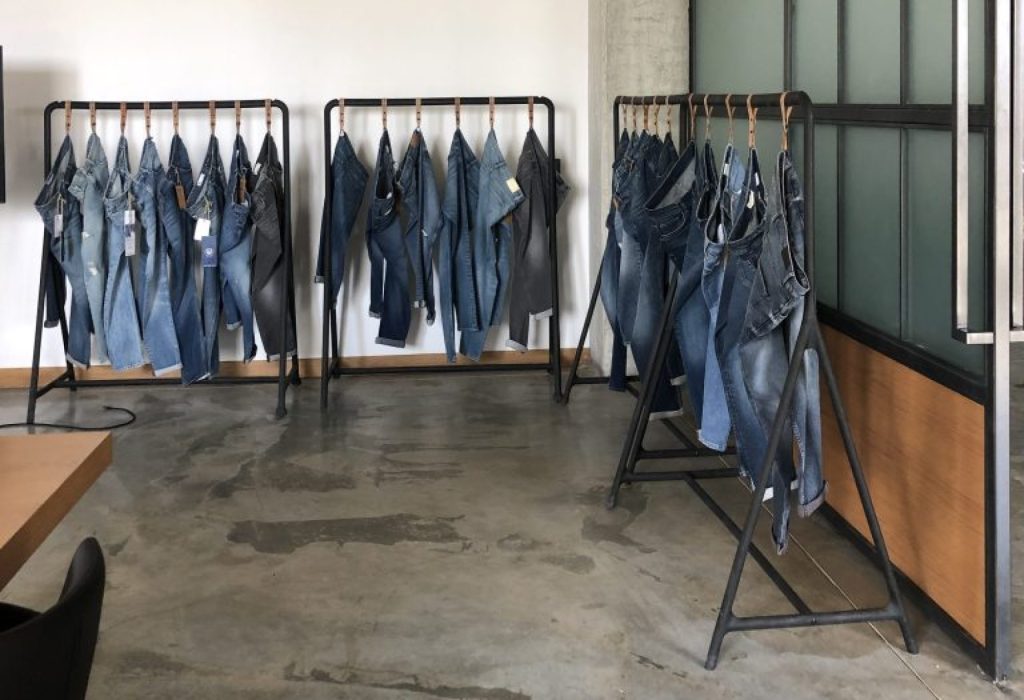TOPIC ETHICS
The Ethics of my action research was personally a challenging aspect for me to consider and this is linked closely to the topic I teach and linked to the student’s expectations of my institution and their future professions in the fashion industry.
I teach at the School of Design and Technology at the London College of Fashion on the Masters in Innovative Fashion Production. I teach four units on this course including the supervision of the Master projects. Innovation is a major part of the content of this course and for young people signing up for it, our students often expect ich knowledge and skills in new technology, and digital developments to produce more clothes cheaper and with better profit margins. There is a notion of bigger, better, faster and more. Innovation rarely ever means saving resources and reducing speed out of the supply chain for the recruitees. Having to raise sustainable production as a direction in fashion manufacturing has been challenging as our students often come from overseas and spend their parents’ life savings on achieving their dreams which I am reluctant to crush. I have made the diagram below to better explain the conundrum.

Considering the above and in planning my visit to the SATCol Reprocessing Centre I was aware that some of the students might have preferred to go into one of London’s department stores to examine the needs of product development for the luxury end of the industry or they would have liked to go to a factory that produces luxury clothing in this country and perhaps not an end-of-life waste management facility for textiles.
The question to myself was whether I have the right to take the students to this facility where the students might be faced with a problem they are unwilling to acknowledge. After all the interest in stopping waste in the fashion industry is my own and perhaps not the students’. The literature indicated that I was holding on to old colonial beliefs and recognising an unwillingness to adapt to change. Rousell (2016) explains that even as ‘we find ourselves already in the midst of everyday social and ecological catastrophes, existential risks and uncertain futures’ (Rousell, 2016, p. 138), we remain invested in the continuity of a modern-colonial system that is both modern higher education’s condition of possibility and the root cause of climate change.
Packed with this understanding I went to examine this question deeper and referred back to the Learning Outcomes of the unit that I teach on and found LO4 was in line with my plan as it outlines the construction of comprehensive undertanding of the environmental and social implications of fashion production.

Screenshot of Assessment Brief_ Learning Outcomes
I have further taken into consideration the Climate Action Plan of UAL which is a disappointingly short document but still gave me the mandate to go ahead with my action research project and expose my students to the content I knew they would find.

The overall strategy of all activities at UAL is underpinned by Sustainability and Social Justice and frameworks for this are being implemented via the Climate Change Advocates at LCF.
At this point, I felt grateful and lucky to be able to invest this time into exploring my own interests and how it aligns with the values of my place of work. This was grounding and reassuring and secured my position on the topic.
The other concern I foresaw was that the topic was very serious and overwhelmingly big and global. I was aware that I am presenting the student with an enourmous problem that it was impossible to come away from in the same way as Climate Change. All of this in an industry that they wanted to become a part of and strive. Initiallly I had the intenion of sharing solutions to the problem on the day but as time was very tightly packed I put on a Debrief Workshop two days after the visit to catch this and come away with a proactive approach to the potential overwhelm.
RESEARCH ETHICS
Please see the link to the Ethics form as an introduction to the Ethics of my Action Research Project: Ethics form Satcol visit
The Ethics form was signed off on the first submission and I was able to proceed with the Action Research as outlined.
According to the University of the Arts London Code of Practice on Research Ethics, I understood that it was my care of duty to ensure.
It was made clear to all participants that taking part in the research was the right to withdraw from the research at any point and this would not affect the learning of the external visit or the content delivery for the day.
Consent to the visit was achieved verbally and students were given the right to withdraw at any time of the research verbally or via email. The right to withdraw is and consent run alongside each other. Withdrawal from the research did not mean they could not take part in the visit.
The survey was specifically voluntary and the collection of the questionnaires was carried out casually and without exerting pressure on the participants.
Please see further in the Appendix 7 the UAL General Risk Assessment Form that addressed all physical risks of the visit. Due to the nature of the products the students needed to handle worn textiles which could possibly be contaminated. The SATCol health and safety rules were observed on site.
